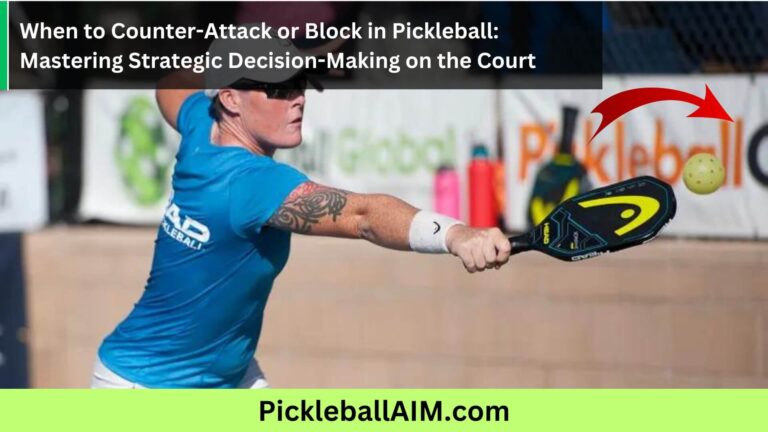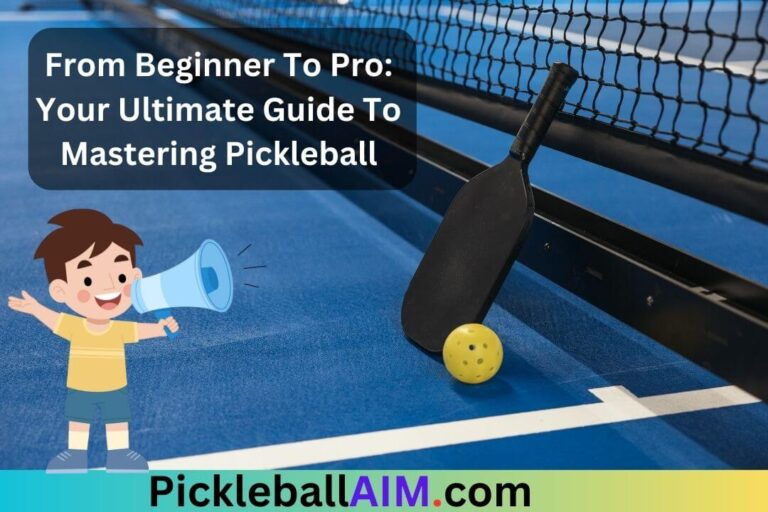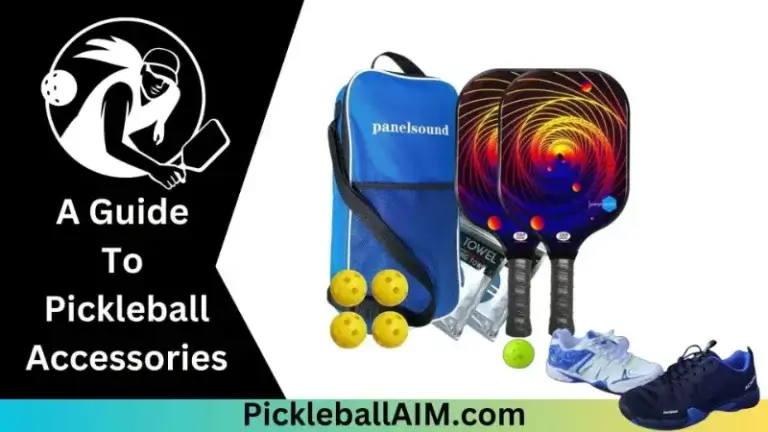Court Courtesy: Mastering the Unspoken Rules of Pickleball Etiquette
Pickleball, a sport that marries elements of tennis, badminton, and ping-pong, is not only a game of skill but also of etiquette. While formal rules govern gameplay, unspoken norms and courtesies are equally important. This guide delves into the subtleties of pickleball etiquette, ensuring you’re as adept with your court manners as you are with your paddle.
1. Respect the Rules of the Game
Before delving into etiquette, a fundamental respect for the official rules of pickleball is paramount. Knowing the rules not only shows respect for the game but also for your opponents and the playing community.
2. Paddle Taps: The Universal Sign of Sportsmanship
A unique aspect of pickleball culture is the ‘paddle tap’ at the game’s end, akin to a handshake in other sports. It’s a sign of good sportsmanship, acknowledging your opponents and partners regardless of the match outcome.
3. Serving Etiquette: Announce the Score Loud and Clear
Before serving, it’s customary and required to announce the score. This keeps everyone on the same page and demonstrates respect for fair play. Make sure your voice is clear and audible to all players on the court.
4. Call the Lines Fairly
Honesty in line calls is a cornerstone of pickleball etiquette. If a ball lands near a line, the player closest to it typically makes the call. If you’re unsure, giving the benefit of the doubt to your opponent upholds the spirit of fairness.
5. Avoid ‘Ernie’ and ‘Around the Post’ Shots in Friendly Play
While spectacular, shots like the ‘Ernie’ (jumping over the corner of the non-volley zone to hit a volley) and ‘around the post’ shots (hitting the ball around the outside of the net post) may be too aggressive or risky in casual play. Save these for competitive matches.
6. Keep Your Cool
Pickleball should be enjoyable. Avoid temper tantrums, racket throwing, or excessive celebration. Good sportsmanship means maintaining composure, whether you’re winning or losing.
7. Respect the Server’s Pace
While it’s important to keep the game moving, rushing your opponents’ serve isn’t polite. Give servers a moment to set and announce the score. Similarly, as a server, be considerate and ensure your opponents are ready before you serve.
8. The Right to ‘Call a Let’
If there’s an interruption from a ball or player from another court, any player can call a ‘let’ (a redo of the point). It’s important for safety and fairness. Call it promptly and respectfully.
9. Acknowledge Good Shots
Appreciating a good shot by your opponent is a sign of respect. A quick “nice shot” or “good play” fosters a friendly, competitive spirit.
10. Managing Disagreements
Disputes happen, but how you handle them is crucial. Discuss disagreements calmly and respectfully. If needed, a re-serve can settle things without conflict.
11. Noise and Distractions: Be Mindful of Your Surroundings
Avoid loud conversations or noises near courts where games are in progress. Respect others’ concentration and enjoyment of the game.
12. Court Rotation and Sharing
In public or club settings, court sharing is common. Follow the established rotation system, usually a win-by-two rule or a fixed number of games. Be prompt in rotating off to allow others their turn.
13. Equipment and Personal Items: Keep the Court Clear
Keep personal items like bags, water bottles, and extra paddles off the court. This reduces trip hazards and respects the playing space.
14. Post-Game Etiquette: Leaving the Court
At the game’s conclusion, a simple “thank you” to your opponents and partner is customary. It’s a gesture of appreciation for the shared time on the court.
15. Social Media and Photography
Be respectful when taking photos or videos. Obtain consent if you plan to post images on social media, especially if they include other players.
16. Hosting and Guest Etiquette
If you’re hosting a game, provide clear information about the venue, time, and any necessary equipment. As a guest, arrive on time and follow any specific rules of the host’s court.
17. Teaching and Advice: Offer Wisely
Offering advice on technique or strategy can be helpful, but it’s best done if solicited. Unsolicited advice can sometimes come off as patronizing or critical.
18. Celebrating Diversity and Inclusivity
Pickleball is enjoyed by people of all ages and backgrounds. Embrace diversity and be inclusive in your interactions. Discrimination or exclusion has no place in the game.
The Heart of the Game is Respect
Pickleball etiquette is rooted in respect – for the game, the players, and the community. Embracing these unspoken rules enhances the experience for everyone involved, fostering a culture of camaraderie and mutual respect. Remember, how you play the game and conduct yourself on the court is as important as the score.







